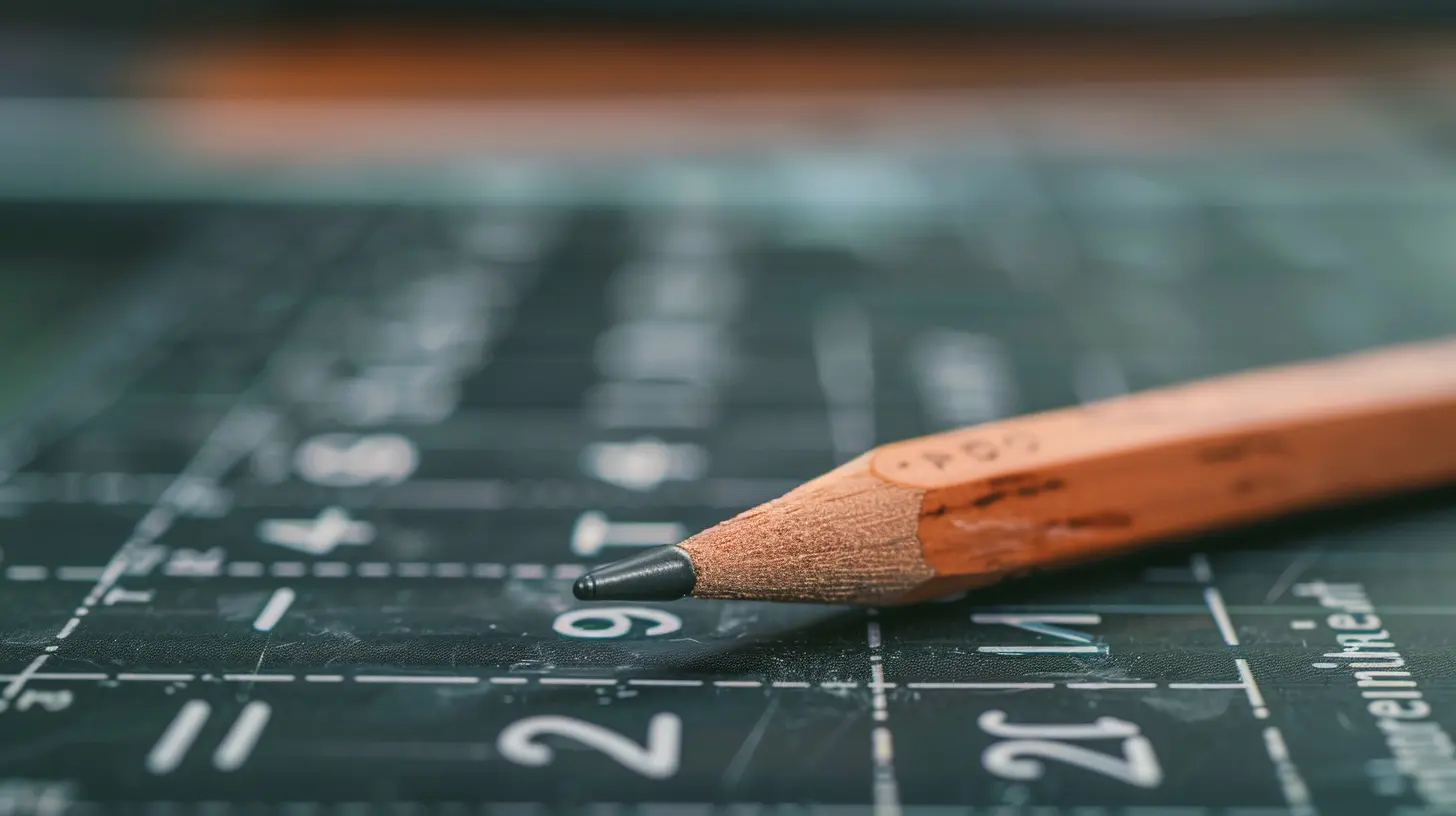The Importance of Math in Everyday Decision-Making
26 July 2025
Let’s be real — when most of us think about math, the first thing that comes to mind is probably high school algebra or the frustration of working out word problems (Looking at you, train A and train B). But here's the thing: math isn’t just something stuck in textbooks or walked away from once we graduate.
Whether we like it or not, math is with us every step of the way. It's behind the scenes like an invisible sidekick, helping you make better choices, solve everyday problems, and avoid those “oops” moments.
So, buckle up! We're diving into the surprisingly fun and quirky ways math helps you crush it at adulting, from grocery runs to managing your money, planning vacations, and even deciding whether to hit snooze one more time.
Math Is Your Everyday Superpower (Even If You Don't Realize It)
Think math is just for accountants, engineers, or rocket scientists? Nah. You use math way more than you think — it's in your kitchen, in your wallet, and even in your daily routine.Sure, you might not be solving calculus equations before breakfast, but every time you weigh pros and cons, crunch numbers, or work out the "best deal" on a new phone plan — math is there, ninja-style.
Let’s break down where math sneaks into your everyday decision-making (and how it secretly saves your butt).
1. Money Matters: Budgeting and Spending Smarter
If there’s one place math really shines, it’s in managing your finances.Picture this: You’re deciding whether to buy a $6 latte every day or switch to making coffee at home. A quick calculation — $6 x 30 days = $180 a month on coffee. That’s math whispering, “Hey, maybe treat yourself, but also consider your savings.”
Math helps answer those adulting riddles like:
- “Can I afford this?”
- “Is this a good deal?”
- “Should I invest or save?”
- “What's my monthly budget?”
Whether you’re calculating interest on a credit card or figuring out how many hours you need to work to afford that dream vacation, math keeps your financial life from turning into a hot mess.
> 💡 Pro Tip: Use basic math to track your income and expenses — it’s like GPS for your wallet.
2. The Ultimate Time Juggler: Scheduling and Planning
Ever feel like 24 hours just isn't enough in a day? Same. That’s where math jumps in with some serious time management skills.- Need to fit gym, work, dinner, and Netflix into your day?
- Trying to figure out how long it’ll take to finish that last-minute assignment?
- Debating if you have enough time to binge an entire season before bed?
You're using estimated time calculations without even thinking about it. Math is the behind-the-scenes scheduler, helping you prioritize and make sense of the ticking clock.
> 🎯 Think of time-management like a puzzle — and math gives you the edge pieces.
3. Shop Like a Pro: Discounts, Deals, and Value
Ever been wooed by a flashy “50% OFF” sign? Yeah, we all have.But here’s the thing: not all discounts are created equal. Math gives you the x-ray vision to see through marketing fluff.
Imagine two items:
- Item A: Originally $100, now 50% off
- Item B: Originally $70, now 20% off
Quick math tells you:
- Item A = $50 after discount
- Item B = $56 after discount
Boom 💥 — math just saved you $6.
It also helps with unit pricing (Is the mega-pack really the best value?) and navigating sneaky subscription fees that “accidentally” renew (Looking at you, gym memberships).
4. Cooking with Math: A Recipe for Success
Who knew baking cookies could be a math class in disguise?When you cook or bake:
- You’re measuring ingredients
- Scaling recipes for more people
- Calculating cooking times per pound
Let’s say you have a cookie recipe for 12, but need to make 30 for a party. Quick ratio math tells you to multiply each ingredient by 2.5. Without math, your cookies either flop or end up inedible.
> 🍪 PSA: "A pinch of math" can be the difference between a delicious dinner and ordering takeout...again.
5. Fitness Goals and Health Hacks
Trying to hit your daily step goal? Or maybe counting calories or balancing macros?Math is all over your fitness routine — from tracking progress, measuring improvements, to ensuring your calorie intake matches your goals.
It answers questions like:
- “How many calories did I burn?”
- “How many steps do I need to hit 10,000?”
- “What’s the best ratio of carbs to protein?”
Math helps you measure results and make better health choices. No fancy equipment needed — just good ol’ subtraction and percentages.
> 🏋️♀️ Whether you’re losing pounds or gaining muscle, math is your personal trainer with a calculator.
6. Travel Like a Boss: Budgeting, Navigation, and Timing
Planning a trip? It’s basically one big math assignment (but way more fun).Think about what you calculate:
- Flight prices and hotel rates
- Exchange rates for foreign currency
- Travel durations and layover times
- Fuel costs for road trips
Let’s say you’re comparing two flight options:
- Flight A: $300, 2 stops, 14 hours
- Flight B: $400, non-stop, 5 hours
Is your time worth the extra $100? Only you (and math) can decide.
> ✈️ Pro Tip: Math makes sure your dream trip doesn’t turn into a travel nightmare with hidden costs.
7. Risk vs. Reward: Making Smart Life Choices
Whether you’re deciding to take a new job, start a side hustle, or buy a house, every major decision involves assessing risk and reward — and guess what helps? Math.From estimating salary increases to comparing mortgage rates, math helps you weigh your options in a logical way.
Let’s face it, emotions are powerful, but they don’t always lead to the smartest decisions. A little bit of number-crunching can keep you grounded when your heart says “YOLO.”
> 🎢 Think of math like your emotional seatbelt — keeping the ride exciting but safe.
8. Parenting, Teaching, and Helping Others
Ever tried explaining fractions to a curious kid? Math pops up big time in parenting and teaching moments.From helping with homework to planning birthday parties and managing family budgets — real-life math is everywhere.
Kids ask questions like:
- "How many slices do we each get if we split the pizza?"
- "How long until my birthday?"
- “How many cookies does each friend get if we have 24?”
Spoiler alert: Math answers all of them.
> 🧠 When you teach kids math in daily tasks, you're not just helping with school — you're giving them life tools.
9. DIY Projects and Home Improvements
Cutting wood, buying paint, rearranging furniture — home projects are a giant geometry set disguised as a chore list.You use math to:
- Measure dimensions
- Calculate square footage
- Estimate supply costs
Want to paint a room? You’ll need to figure out area (length x height) and how many cans of paint to buy based on coverage per gallon.
No math = overbuying (wasting money) or running out mid-job (frustrating).
> 🛠️ DIY + math = masterpieces without the chaos.
10. The Hidden Confidence Booster
Let’s not forget the best part: math builds confidence.When you can budget better, make smarter purchases, and feel in control of your time and money — you feel unstoppable. Knowing the numbers behind the choices makes you feel empowered, not overwhelmed.
Think of it this way: math is like your life GPS, always rerouting you toward better decisions.
Even if you were never a “math person” in school, real-life math isn't about tests and grades — it's about being savvy, sharp, and ready for whatever life throws at you.
Final Thoughts: Math Is Everywhere, So Why Not Use It?
Math isn’t just for classrooms and calculators. It's in your phone, your fridge, your calendar, your closet — even your coffee cup. Every time you make a decision that involves time, money, measurement, or logic — math is your co-pilot.So the next time someone says, “When will I ever use this?” you’ll know the answer.
Every. Single. Day.
And hey, the good news? You don’t need to be a genius to use math to your advantage. A little bit of number-savvy goes a long way toward smarter, smoother decision-making. 🧮✨
FAQs About Math in Everyday Life
Q: What if I’m terrible at math?A: Totally okay! Everyday math doesn’t require rocket science — just basic skills like addition, subtraction, percentages, and comparisons.
Q: What tools can help with daily math?
A: Calculators, budgeting apps (like Mint), conversion tools, and even your phone’s timer or calendar. Math isn’t about memorization anymore — it’s about using tools smartly.
Q: Is math still relevant if I don’t deal with money or data in my job?
A: 100% yes. Math isn't just tied to a paycheck — it helps with personal choices, time management, health, travel, and even social activities.
all images in this post were generated using AI tools
Category:
Math SkillsAuthor:

Bethany Hudson
Discussion
rate this article
1 comments
Gwen Pacheco
Mathematics is the backbone of effective decision-making in daily life. From budgeting to problem-solving, math equips us with essential skills to analyze information critically and make informed choices. Embracing math not only enhances personal finance management but also fosters logical reasoning, empowering individuals to navigate complex situations with confidence.
August 10, 2025 at 12:41 PM

Bethany Hudson
Thank you for highlighting the crucial role of mathematics in daily decision-making! It truly empowers us to think critically and make informed choices in various aspects of life.


